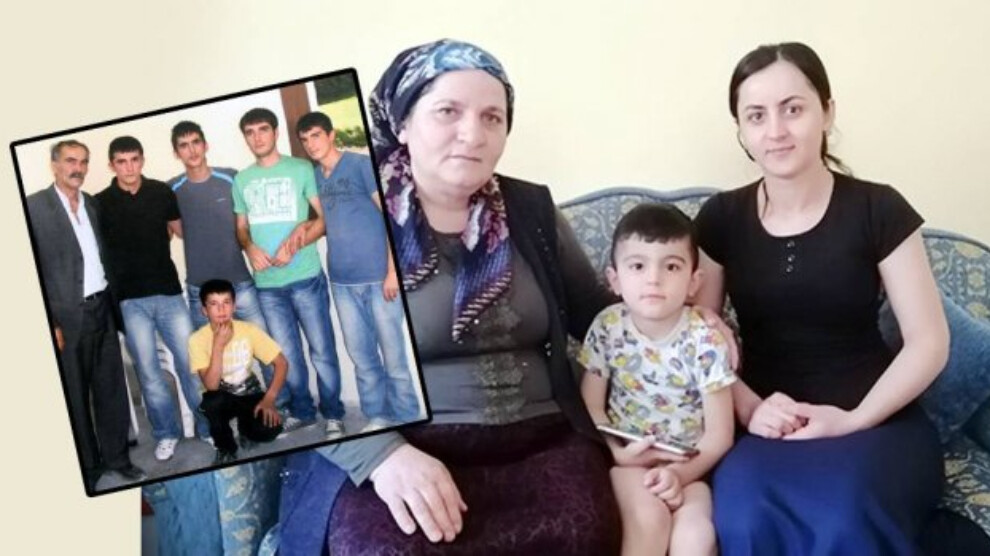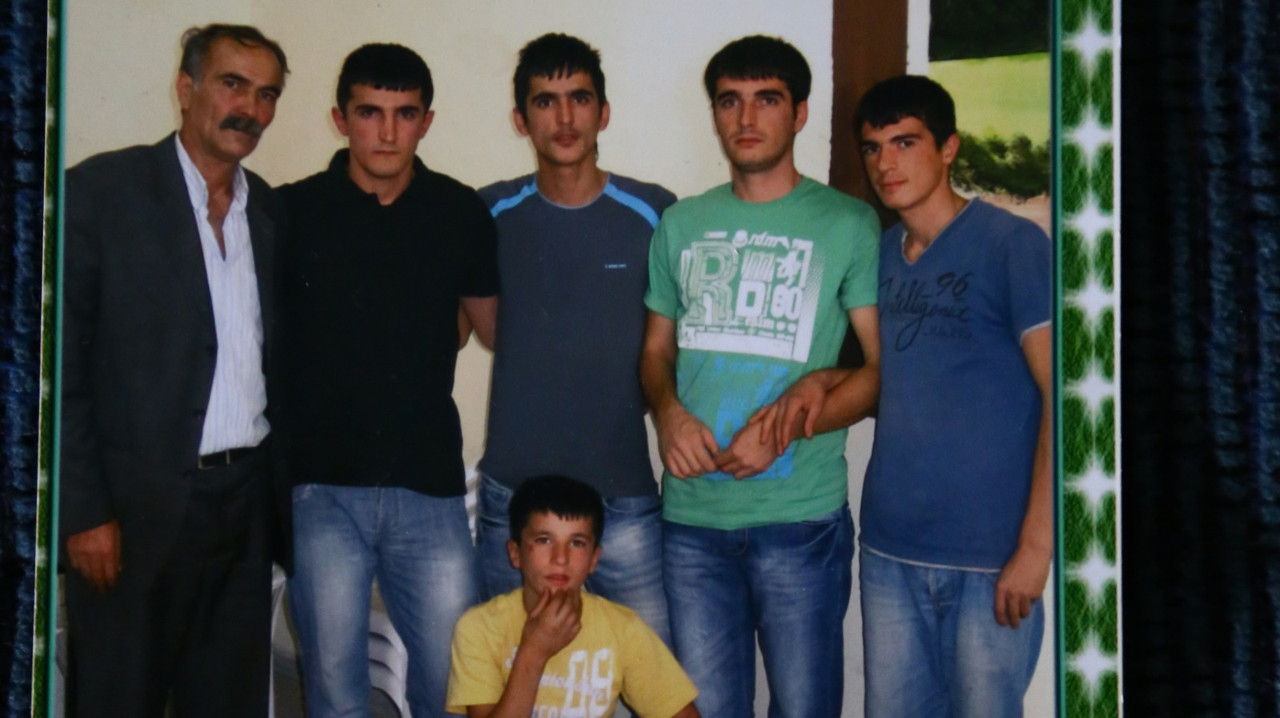Five sons in prison
Şemsixan Ertunç lives in Hakkari with her daughter-in-law and a grandson. She has five sons, all of whom are in Turkish prisons. "The state owes me five children," she says, "It stole my life."
Şemsixan Ertunç lives in Hakkari with her daughter-in-law and a grandson. She has five sons, all of whom are in Turkish prisons. "The state owes me five children," she says, "It stole my life."

Şemsixan Ertunç has spent the last twelve years of her life traveling back and forth between prisons in different cities in Turkey to visit her five imprisoned sons. She lived with her husband Ahmet and their five children Fırat, Murat, Recep, Ali and Ferhat in the Kurdish province of Hakkari. As one by one all their children were sent to prison, the Ertunç family's life began to change drastically.
"First they took Fırat away from me, and he went to prison for five years. Then he was released, but was arrested again for resisting for self-government and he got 16 years in prison," Ertunç told Yeni Özgür Politika. "Two months after Fırat's arrest, my other son Murat was sentenced to 21 years in prison and when we visited him in Muş Prison, my other son Recep was arrested. A prosecutor took his statement and sent him to prison before he could defend himself in court. Recep was sentenced to six and a half years in prison and an additional eight and a half years based on an anonymous witness statement."
Fırat and Murat have been in prison for ten years, Recep for eight. During those years, Ertunç's other son, Ali, was also arrested on terrorism charges based on an anonymous witness statement against him. Their youngest son Ferhat was sent to prison when he was only 13 years old. "He was sent to Sincan prison in Ankara. We have never been able to see him. He was tortured and the torture was published in the media. He was sentenced to thirteen years in prison," she said.
The five brothers, who were sentenced to a total of 80 years in prison, are being held in three different prisons in Amed (Diyarbakır), Van and in Tekirdağ in northwestern Turkey. Şemsixan Ertunç summarizes her situation in the following words, "I have five children and all five of them are in prison. I have been walking the streets to these prisons for twelve years. I feel locked up like my children, life has become a prison for me too. That's why I resist, just like they resist in the prisons."
Three of her sons are currently on hunger strike, launched by Kurdish political prisoners on November 27, 2020. All of her five children participated in the previous major hunger strike initiated by Kurdish politician Leyla Güven in November 2019. Ali and Ferhat are suffering from irreversible health problems due to the first hunger strike.
Şemsixan Ertunç lost her husband Ahmet to a heart attack in 2020. "I had a companion. We resisted together and supported each other, but my husband's heart could no longer bear this pain," she says.
When Ahmet Ertunç lost his life, none of his five children were given permission to say goodbye to their father. There is only one photo showing the father and all his five sons, and even that photo was taken in prison.
"The state owes me five children," Şemsixan Ertunç says. "It stole my life, took my children and my husband from me, I was left alone. It's not just my children, all Kurds are in prison. I didn't go to school and I can't write or read, but I know what the Kurds are suffering, I know the condition. Every time I visit the prison, I learn something new."
